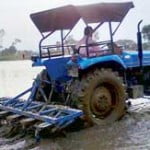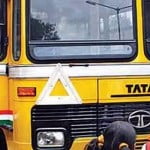
The western swathe in Tamil Nadu slices through an intriguing poll scape of two caste belts — the intermediate Vanniyar and the Gounder communities. And the Kongu region in particular, has as much an expansive array of caste identities as it does flourishing industries.
The struggle for a stronghold in the Kongu belt has seen many political parties in the region splintering multiple times while entering the electoral fray.
These parties old and new, in theory, have their brief ready at the door – 40% of Tamil Nadu’s GDP, they say, is thanks to the work of Kongu industrialists across the region, whose representation in Tamil Nadu politics has seen an improvement – AIADMK is fielding two Kongu party candidates – Thaniarasu and Easwaran – of which the former is already an MLA. And these small parties say they carry on their shoulders the responsibility of representation.
The parties include Kongu Nadu Munnetra Kazhagam, Kongunadu Makkal Desiya Katchi, Kongunadu Jananayaga Katchi, Kongu Nadu Makkal Katchi, Kongu Vellala Goundergal Peravai – and this is after multiple breakaways over decades due to elementary differences in ideology and principles. Party leaders are seemingly conflicted over making a mark in the legislature by winning votes without compromising strong community support in the belt.
Among mainstream parties, the DMK has earned the ire of many Kongu parties after sidelining their allies during their rule in 2006. The AIADMK however, often pitches its anchor for a smooth sail in the Kongu belt. The AIADMK contested 78% of the seats in 2011, clearly indicating the western tilt in AIADMK’s poll calculations.
Around May 2014, in a bid to unite Kongu parties as a common goal, in Perumanallur in Tirupur district, Kongunadu Makkal Desiya Katchi (KMDK), conducted a “Political Renaissance Conference”. Aside from a seeming unity, this conference also sprung many breakaways from alliance partners and a common disdain for Dravidian parties. For parties that are united by caste ideologies, the camaraderie didn’t last very long.
“You know, they keep drifting, today it’s the AIADMK, tomorrow it will be the DMK again – but Dravidian parties do not care for our demands,” says K Nagaraj. Now the leader of the 20-year-old Kongunadu Jananayaga Katchi, Nagaraj was previously with the Kongunadu Makkal Desia Katchi, which briefly had an alliance with the BJP. “But, as usual, we were nudged aside – the rest of the party members were there purely for power.” Nagaraj strongly asserts that parties in the region that are entering the mainstream political scene in Tamil Nadu are giving up on their essential tenet of uplifting the Kongu region for purely electoral reasons. The Kongunadu Munnetra Kazhagam, which was formed during the 2009 Lok Sabha election had split in 2011, when the then general secretary ER Easwaran quit the party to form the Kongunadu Makkal Desia Katchi.
He expresses an affinity towards the Pattali Makkal Katchi’s leader Anbumani Ramadoss’ ideals – particularly in the much heated situation of inter-caste marriages. “Love drama, where affluent Gounder and Thevar families suffer when their daughters are lured by Dalit men and stripped of their money – and prestige – this is a real threat in our region and for the Vanniyars as well. I would completely sympathise with a father killing off his daughter’s lower caste husband,” he says. On April 2, Nagaraj joined hands with the Pattali Makkal Katchi.
The air is still heavy from the residual tensions of Sankar’s killing. While it haunts the Dalit community in the region, it’s the elephant in the room with Kongu leaders. Perumal Murugan, Gokulraj, Sankar – Gounder honour and pride, seemingly speaks here louder than anywhere else in the state. “There are Gounder-Dalit tensions, let’s be honest here, and we have a strong following because of which we provide counselling to 500 families who have been affected by inter-caste marriages like Sankar’s. We consider it a moral duty,” says Suryamurthy, secretary of the Kongunadu Desiya Makkal Katchi.
The 7-year-old party helmed by President ER Easwaran holds a strong caste ideology, sharing one similar to Nagaraj’s concerns. It has also had substantial success in the political arena. Polling over a hundred thousand votes while standing independently for the Coimbatore constituency back in 2009, the party is currently in the NDA alliance since 2014. Easwaran was previously with the Kongunadu Munnetra Kazhagam, now under AM Raja, and had allied with the DMK on many occasions during his stint with KMK. But multiple tensions on seat sharing and constituencies with the DMK, and the nudging out of pro-Kongu policies had led to a major rift within.
Suryamurthy assures that the counselling is simply done in the interest of economic inequalities that arise in inter-caste marriages when an affluent caste-Hindu woman marries a Dalit man. “See, we are not against love. But love without seeing how much money he can bring home? It’s impractical. The Vanniyars have this problem too.” At the mention of the Gokulraj murder, he quickly switches to policy matters. “We want to focus on both improving business in the land, and addressing real social problems like fraud in inter-caste marriages.”
For Kongu leaders who have climbed the political ladder, it’s a steep way ahead and a tough call to comment on caste, however they may be party to the issues that surround it. Thaniarasu, the MLA in power representing AIADMK, is from the Kongunadu Ilaignar Peravai which struck an alliance with the party in the 2011 elections. The party formed to gain votes in Kongu Vellalar, which holds more than 15% of the Tamil Nadu electorate.
The diplomacy on caste issues is striking, most likely owing to his close association with the Gokulraj case. Yuvaraj, Gokulraj’s killer and a former party member, had openly challenged him.
He says the splintering is only normal considering the struggle to go independent or stay in alliances that make cadres unhappy. He is largely evasive and does openly does not declare an inclination towards strong caste ideologies. “I don’t think caste should be important, I simply don’t.”
It’s the same narrative in the case of ‘Best’ Ramasamy, where political mainstreaming equals a veiled approach to caste.
For him, development, he says has been his focus. His political career spans decades since his foray into politics in 1988 as one of the founders of Kongu Vellala Goundergal Peravai. Later he became president of the party in the year 2007. After the party breaking up in 2009, he was declared the president of “Kongunadu Munnetra Kazhagam”. Ramasamy under KMK contested in the 2009 Lok Sabha elections in Pollachi Constituency and came third securing over one lakh votes. “We are community development focused, I don’t want to bring caste into this, I would never consider caste to be as important. I feel people who don’t know how to uplift the communities in the Kongu region will bring in caste.”
Ramasamy is also an entrepreneur – the chairman of well known “Best Group” – a group of apparel and textile related companies in the city of Tirupur. “Of course, parties would split, the kind of priorities we have all had over the years expose whether we care about the people or not,” he feels, “and economic growth is what we need more than focusing on caste.”
The strength of these parties on a community based level is largely secure thanks to their ideology but that isn’t going to get them far. “It’s all symbolic, we obviously don’t see them trying to create a real impact on ground. It’s an assertion of their caste identity and less to do with welfare.They probably make it to about 1 or 2 seats on allying, major Dravidian parties will not compromise because they also have a significant stronghold in these areas. I see them eyeing the PMK votebank, because they are the only mainstream party with a very s caste affiliation that is putting a food forward,” analyst Ramu Manivannan notes.
Kongu people largely feel left out, Manivannan feels, but trying to consolidate the community power as well as mainstream themselves with their beliefs is an uphill task. “The compromise is hard. There’s a growing inclination among Gounders and Thevars to side with the PMK which is geared towards the Vanniyar community because they share a common intensity on caste issues.”
– See more at: http://www.thenewsminute.com/article/caste-fanaticism-and-industry-make-or-break-behind-tamil-nadu%E2%80%99s-kongu-parties-41372#sthash.JQgjpzzm.dpuf
[“source-Theguardian”]




